
A mascot character named Kumamon represents Kumamoto prefecture in the Kyushu region, southwestern part of Japan. He is now "Japan's most popular bear." He attracts a diverse range of people, from children to adults who are charmed by his plump, black body, red cheeks, and wide-open eyes as if looking surprised, saying how adorable he is. Among lots of municipal PR mascot characters from all around Japan, he won the first place in a nationwide popularity vote in 2011. Ever since, Kumamon has appeared in numerous places, including events and product campaigns, rising to the seat of Japan's representative mascot character that transcends prefectural boundaries.
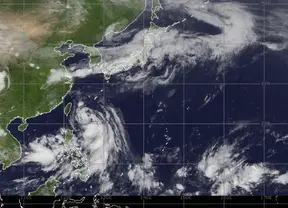
Six people in the quake-hit Kumamoto Prefecture in southwestern Japan were dead as torrential rain continued storming the region since late Monday, said local authorities on Tuesday, with weather agency warning of the risk on landslides and swollen rivers in the following days.
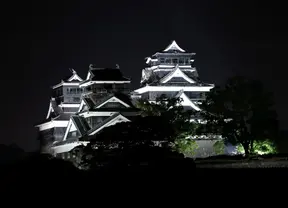
It might have taken one helluva beating, but there's life in the old donjon yet.The beloved keep of Kumamoto castle was lit up again at night on June 1 after being kept in the dark for almost six weeks.

Emperor Akihito and Empress Michiko visited Kumamoto Prefecture on May 19 to encourage evacuees from the recent earthquakes.
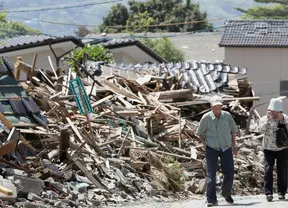
Scientists studying the earthquake that struck southern Japan in April have identified a number of seismological factors that made the tremor so destructive – and warn that should the same factors combine beneath a major city it could bring down a skyscraper.
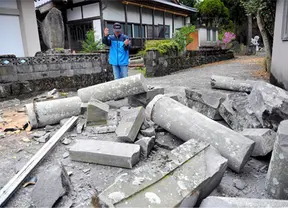
The impact of the magnitude-7.3 temblor that hit Kumamoto Prefecture on April 16 was compounded by a small earthquake that struck shortly after in neighboring Oita Prefecture, seismologists say.

The death toll of waves of major quakes that hit Kumamoto Prefecture in southwestern Japan last week reached 48 and three are still missing, according to local authorities on Wednesday, while sufferers' health problems are highlighted as 11 died from so-called "quake-related death."
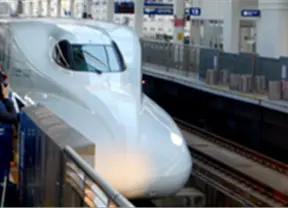
Kyushu Railway Co. (JR Kyushu) on April 20 resumed operations on a section of the Kyushu Shinkansen Line, which had been entirely suspended since the night of April 14 due to earthquakes that struck Kumamoto and surrounding prefectures.

After fleeing from one school to the next in search of safety, a 49-year-old quake evacuee spent a restless and chilly night outside in a schoolyard.
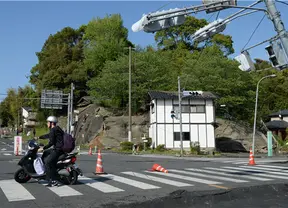
Rescue workers continue to fight against time Monday in a desperate attempt to locate those still unaccounted for in the wake of two powerful quakes and a number of fore and aftershocks rocking Japan's southwestern island of Kyushu and having claimed at least 42 lives.
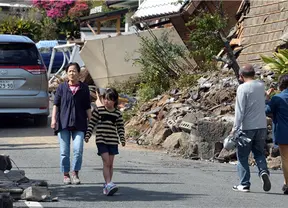
Search and rescue missions are continuing Sunday in quake-stricken regions in Japan's southwest with military personnel and firefighters searching through the rubble of collapsed homes and buildings for signs of life.
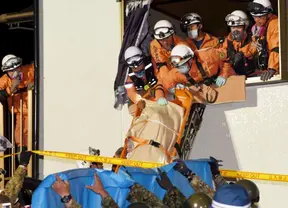
Local police confirmed that nine people were killed after powerful quakes hit Kumamoto Prefecture in southwestern Japan at late Thursday and early Friday, while over 400 people were taken to hospitals.